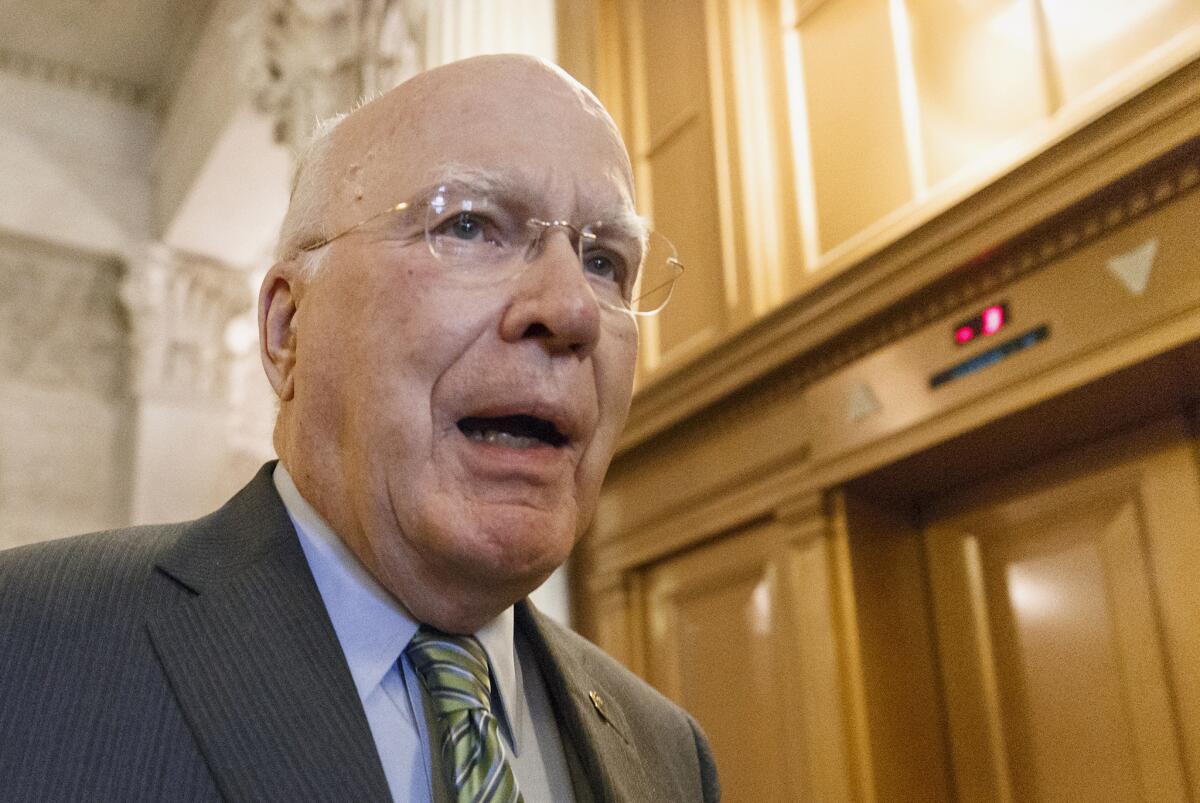Obama, Senate make progress on NSA data-collection reform bill

Senate Judiciary Committee Chairman Sen. Patrick J. Leahy (D-Vt.) on Capitol Hill in Washington.
- Share via
Reporting from Washington — The Obama administration and Senate negotiators appear close to an agreement to strengthen legislation that would curtail the bulk collection of data on Americans.
In May, the House passed a watered-down version of a bill sponsored by Rep. Jim Sensenbrenner (R-Wis.) and Sen. Patrick J. Leahy (D-Vt.) to the cut back on the data collected by the National Security Agency and law enforcement agencies from phone calls, emails and other communications.
The administration raised last-minute objections to some provisions in the House bill, raising the ire of privacy groups. Leahy, chairman of the Senate Judiciary Committee, vowed to work on improvements to put some of the muscle back in the bill before a Senate vote.
According to an administration official familiar with the discussions, a compromise was reached over the weekend.
As part of the deal, the intelligence community agreed to a stricter definition of the search terms the NSA may use to seek data from telephone companies that might be useful in connecting the dots between known terrorists, said the official who would not be identified talking about ongoing negotiations.
Privacy advocates thought the definition for selection terms in the House bill created a loophole for NSA to continue its broad surveillance.
Intelligence officials also agreed to be more transparent about U.S. government snooping and consented to strengthening the role of a newly created public advocate, who would participate in Foreign Intelligence Surveillance Court proceedings, the official said.
Privacy advocates said negotiations took a turn for the better when the FBI and the Justice Department joined representatives from the NSA, and the Office of the Director of National Intelligence in the negotiations with Leahy’s staff, making it easier for all stakeholders in the administration to reach a consensus.
Leahy’s office said Monday that negotiations are continuing and passage of a strengthened bill is possible this month.
“Sen. Leahy believes that Congress must act to protect Americans’ privacy without further delay,” his office said in a statement.
Quick passage will depend on whether the Senate Democratic and Republican leaders can agree to find time on the Senate floor next week for the altered proposal, according to administration and congressional sources.
More to Read
Sign up for Essential California
The most important California stories and recommendations in your inbox every morning.
You may occasionally receive promotional content from the Los Angeles Times.















